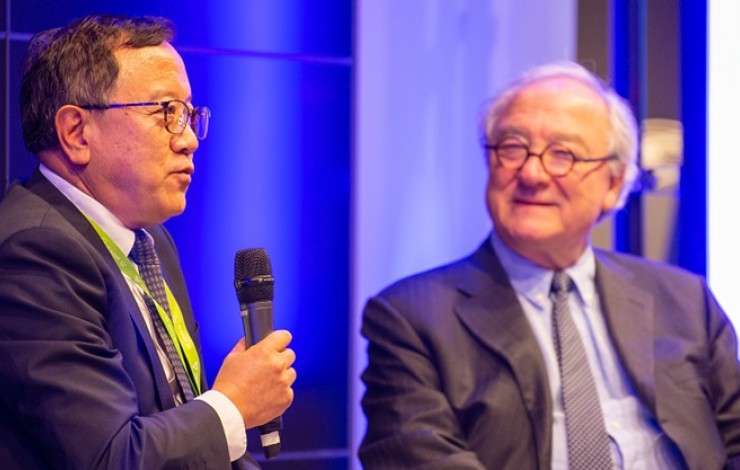Space industry specialists have made the trip from all over Europe and beyond to attend the third edition of the Space Forum, a two-day event held in Luxembourg on May 21 and 22, aimed at promoting exchanges and triggering debates between all the active forces of the sector. Three main topics were addressed during the first day of the event: Security, Open Access to Space, and Innovation and Entrepreneurship.
GovSatCom for Defence and Security applications
After having offered his welcome words to the participants, Paul Wells, Vice President & Chief Commercial Officer of GovSat, presented the activities of his organization, a public-private venture owned by SES and the Luxembourg State. "In a harsh threat environment, our EU and NATO partners are exposed to increasing signal jamming, cyber-attacks and physical attacks", he said. "Our mission is to support our users in need of secure long range communications." To achieve this objective, GovSat provides their partners with X-band mission beam capacity, terminal supply, integration and installation, and local maintenance and support. And all this is orchestrated from Luxembourg, "a senior provider in terms of satellite operations".
Benoît Deper, Founder of Aerospacelab, then took the floor to give an overview of his company's services. "We develop tools to automate a broad range of tasks from surveying to monitoring. We process heterogeneous datasets composed from various sources and can also customize the tools to incorporate your own proprietary datasets", he said. "Another facet of our business consists in building versatile small satellites in the range of 25 to 50 kg. Our satellites are equipped with a variety of sensors collecting high resolution optical data multiple times per day on selected target areas", he added. Benoît Deper concluded by saying that satellites had to shrink in size and in cost to allow constellation to happen, but not too much otherwise their optical performances would be too limited.
"Space has become the new playground for hackers", stated José Achache, who represented AP-Swiss, the ambassador platform of the European Space Agency’s ARTES applications programmes in Switzerland. According to him, applications require enhanced security on ground and space infrastructures, which includes existing markets – such as Satcom, GNSS and Earth observation - as well as upcoming markets – like cloud services and IoT. José Achache introduced a selection of solutions developed by companies from the AP-Swiss ecosystem for ensuring fully secure IoT services from space: Arcaspace's hardware security module for small satellites, Astrocast's global IoT connectivity solution, and Geosatis's secure geo-localized connected devices and systems.
The first roundtable session of the day gathered Hermann Ludwig Moeller, Head of Institutional and European Programmes at ESA, Carine Claeys, Head of the Space Task Force of the European External Action Service, Tanja Zegers, Responsible for the European Commission's GovSatCom initiative and was moderated by Christine Leurquin, VP Institutional Relations of SES.
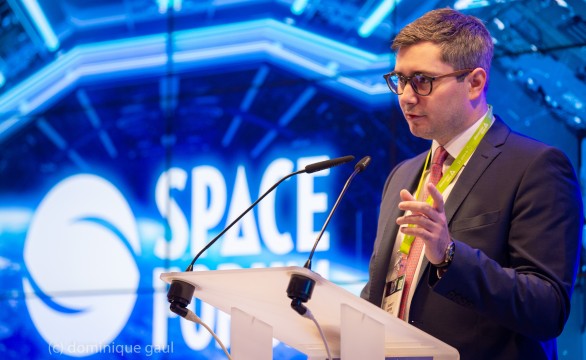
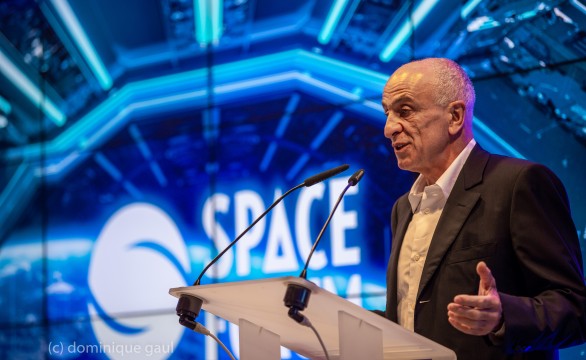
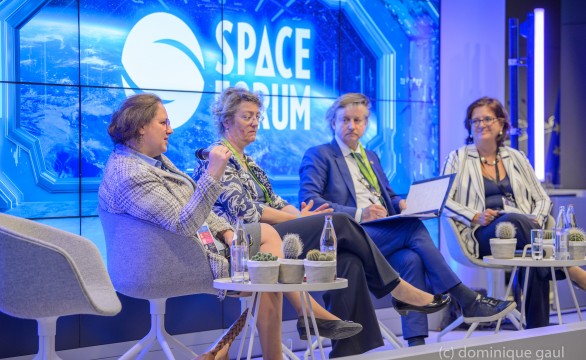
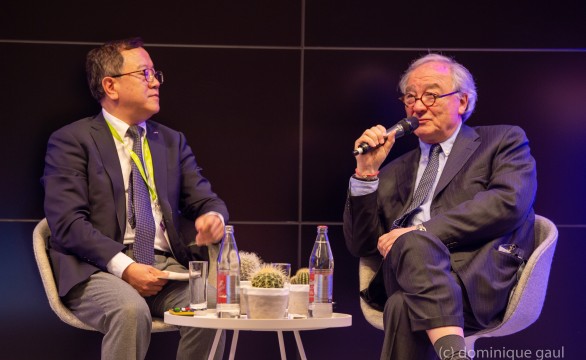
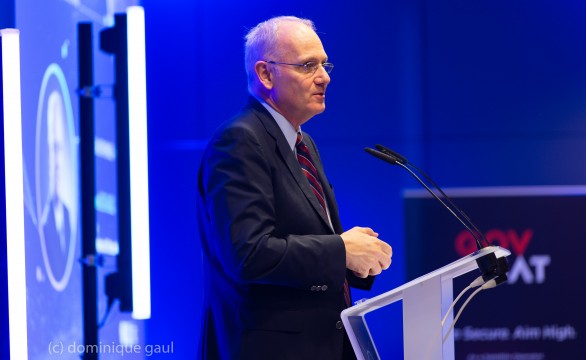
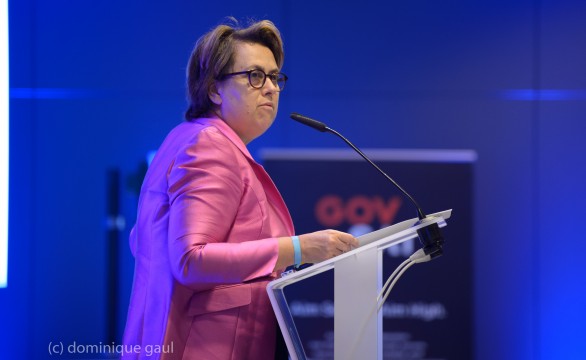
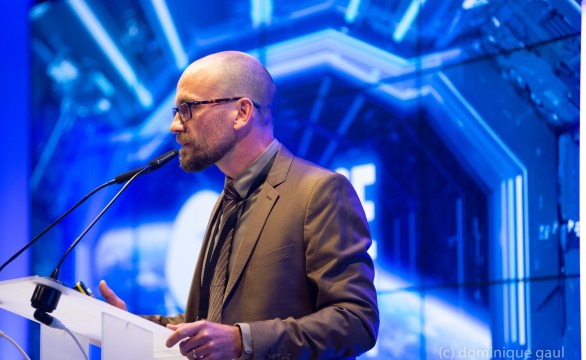
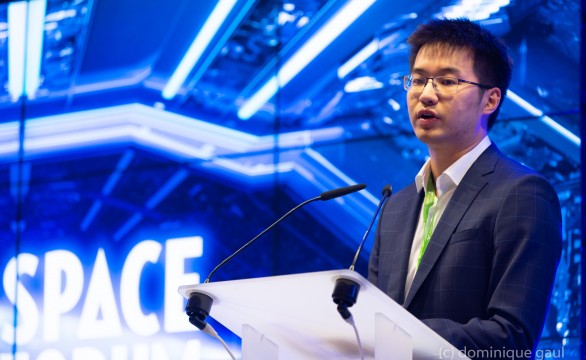
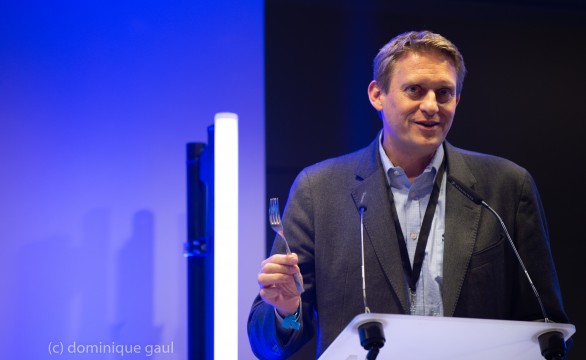
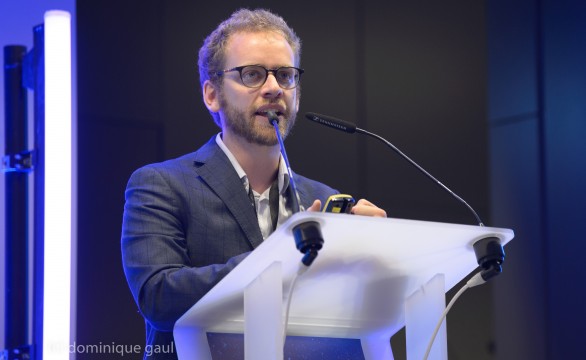
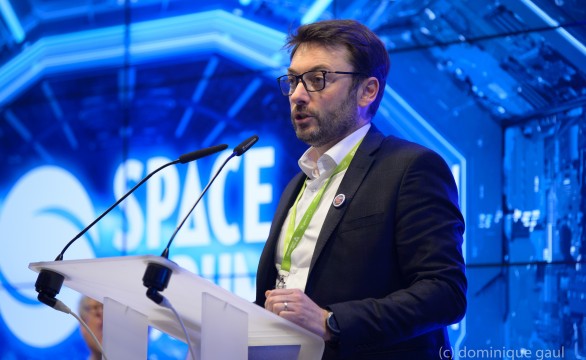
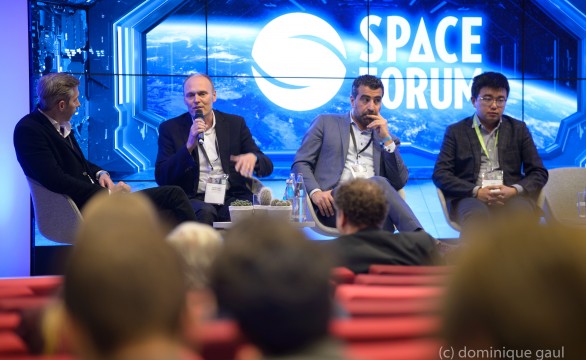
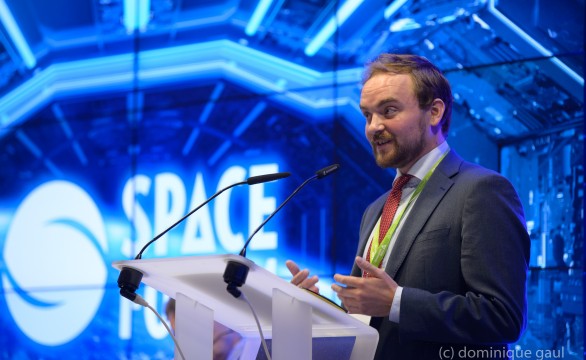
Open access to space: a view from Europe and China
Acting as Master of Ceremony for the second chapter of Space Forum 2019, Jean Jacques Dordain, former Director-General of ESA and member of the advisory board of SpaceResources.lu, underlined that "if defense is still the main driver for space activities, changes are being brought on by new players who are introducing a new culture and new standards of cost and time." He added that "space is nevertheless the only place where it is still possible to collect and spread data everywhere." He then passed the floor to Professor Ji Wu, former Director of the Chinese National Space Science Center.
Pr. Ji Wu told the audience that China had to develop its presence in space with its own capabilities, without any support from the US or Russia. "We have some capabilities in the space field, funded by the government, but this is not enough", he added. However, China has started in 2015 to issue some regulations to open the space market to private actors. The country has 8 million internet users who may be potential customers for the space industry. "NewSpace is an area that venture capitalists are targeting now", said Pr. Ji Wu. "This gives space start-ups opportunities to take off and develop."
The next presentation was given by Dr. Shufan Wu, Chair Professor and Executive Dean of School of Aeronautics and Astronautics at Shanghai Jiao Tong University. He recalled that, with the construction and launch of with micro and nano satellites, the NewSpace wave had been started and was now booming. "In China, more and more players are joining the micro and nano satellite club, both universities and commercial companies", said Dr. Shufan Wu. Since 2015, the commercial Chinese space sector has in fact become more and more active. "Globally speaking", Dr. Shufan Wu added, "China is still in its start-up phase with regard to the micro and nano satellites industry and the development of space-related commercial products and services. But a very rapid and vigorous expansion in these fields is foreseen in the next decade."
Having heard the Chines points of view, Jean Jacques Dordain handed the floor to Jean-Yves Le Gall, President of the Centre National d’Etudes Spatiales (CNES), the French space agency. According to Mr. Le Gall, current developments in the space sector will be accentuated with the emergence of new paradigms in the global landscape. In addition to the traditional US supremacy, China and India are advancing rapidly, as evidenced by the record number of Chinese launches and India's ambitions for human spaceflight. "Today, there are more than 60 space agencies around the world", noted the president of CNES, " and there is no sign of a lack of commercial competition." This is due to a number of factors: the commercial ambitions of national strategies, the NewSpace dynamic that is stimulating the entire industry, whether launchers, satellites or applications, and a rapidly changing satellite market. To address this situation, CNES is running a "complete transformation to become a modern space agency capable of supporting the space ecosystem."
"From a British perspective, NewSpace is small: with no launcher, we are seen as the hitchhikers of the galaxy", said humorously Lord David Willetts, former UK Minister for Universities & Science. More seriously, he added that NewSpace meant "private funding and investments" and "quick and lean" for the British. "The main ingredient of NewSpace is how much data it will produce", he said. "The debate is who owns the data, who can use them and under what conditions". When asked about the role of regulation, he answered "we need a regulative regime that supports and enables the development of launch activities" and that "ESA could play a key role in developing such a regulatory framework".
The next speaker was Simonetta Di Pippo, Director of the United Nations Office for Outer Space Affairs (UNOOSA), who provided the UN perspective on open access to space. Ms. Di Pippo explained that the UN have developed a "2030 Agenda for Sustainable Development" in order to address societal challenges that need to be overcome in the form of 17 Sustainable Development Goals (SDGs) with 169 associated specific targets. Research found that 65 of the 169 SDG indicators are reliant on the use of space. In light of that, the UNOOSA is missioned to provide access to space-data and information and build capacity to use such data to accelerate sustainable development. The Office also facilitates member states in the development of NewSpace policy.
In the context of a scarcity of natural resources on Earth, Bertrand Baratte, Director of Space Activity for Air Liquide, explained to the participants how he world leading company in gas services intended to play a prominent role in the exploitation of new extra-terrestrial resources. The set of solutions that Air Liquide is working on ranges from spacecraft propellants through inflatable and collapsible tanks to technologies for processing gases across the mining value chain. "Our ambition is to become an enabler for the open space journey", said Bertrand Baratte.
Innovation and entrepreneurship in space: where do we stand?
The next session was given by Zee Zheng, CEO & Co-founder of SpaceChain, a company which is building the world's first open-source satellite network to enable a next-generation infrastructure for blockchain industry. "Our mission is to bring blockchain and space together to create more opportunity in both fields", explained Zee Zheng. According to him, space exploration is dominated by governments and large corporations and private investors hesitate to invest in space businesses in reason of long timelines and costly infrastructure. Moreover, commercial space projects tied down by conventional economic models. All these issues hinder space exploration and technology innovation. "At SpaceChain", he said, "we envision a future with multiple companies competing for the internet constellation and networking market, a robust new space economy driven by rapidly developing hardware and networking capabilities, with open-source blockchain protocols as an integral backbone of these systems allowing developers and smaller companies to collaborate and bring a whole new world of innovation."
Nicolas Gaume, Co-founder of Space Cargo Unlimited, then took the stage to describe the research conducted by his company, a Luxembourg based start-up founded by two tech entrepreneurs and space enthusiasts. "Space Cargo Unlimited is dedicated to seizing the potential of microgravity research for commercial applications on Earth", he said. Building strategic partnerships with space operators and leveraging the high-level expertise of the European industry, Space Cargo Unlimited develops a comprehensive know-how in complex microgravity project management and funding, to nurture various innovative and impactful initiatives for the Earth's future. "According to NASA research", added Nicolas Gaume, there is little doubt that cells respond to decreased gravity environments. Even though the mechanism of gravity-induced responses in cells is still unknown, microgravity affords a unique tool to probe the underlying mechanisms in cell biology.
The Co-founder and CEO of Exotrail, David Henri, was called to the stage where he presented his company's activities. "Exotrail develops electric propulsion solutions for small satellites", he said. "Electric propulsion dissociates the launching orbit from the operational orbit. This has several key benefits: it optimises launch strategy, adds flexibility in the launcher choice, reduces overall launch cost and optimizes the range of operational orbits available", David Henri explained. "We develop the highest thrust electric propulsion system on the market, thereby dramatically reducing the time needed to do a propulsion mission. And we do that whilst maintaining a high total impulse density to minimize the impact on your system", he added.
For Charles Black, Founder & CEO of Sen, current Earth Observation solutions have limited effectiveness. "They are designed to monitor change over long periods of time, for monitoring crop health or urban development, for example", he said. When applied to natural disasters or other rapidly evolving events, such solutions show the difference before and after, which can be useful for recovery but not for helping during the disaster. "Sen changes the outcome by using video derive actionable alerts", said Charles Black. Video can change the outcome but only if people have access to the information: "Sen will make video available with a new media, freely accessible, streaming videos to smart phones". In a nutshell, Sen’s ambition is to stream real-time videos from space to billions of people.
As an introduction to his intervention "Innovation Rules & NewSpace", Gregory Pradels, Founder of, first invoked the great thinkers of innovation management, from Schumpeter and Christensen to Osterwalder. He went on to present Newspace Factory, the network of space enablers he founded. "Newspace Factory gathers together ten talented French SMEs sharing a strong desire to support the development of the NewSpace market", he said. Together, the members of the network contributed to more than 250 space projects, including 40 which are currently in orbit. "They bring together a unique industrial capacity and are able to deliver high volume on-time and at a right cost. Their catalogue covers the entire value chain, from the ground segment to the orbital segment", he added.
A panel discussion then followed to provide perspectives on "Investing in NewSpace", gathering Joram Voelklein, Co-Founder of Cryptology Asset Group, Manfred Krischke, CEO and Co-founder of CloudEO, Bulent Altan, Managing director of Mynaric and Yang Feng, CEO and co-founder of Spacety.
The last speech of the day was given by Silver Lodi, CEO & Co-founder of Spaceit, a company providing satellite operations in the cloud. Spaceit was founded in 2015 as a spin-off of Estonia’s first satellite mission ESTCube-1. "Spaceit’s mission is to make access to space affordable. Our vision is to be a leading Mission Control provider in 5 years", said Silver Lodi. Spaceit offers Mission Control as a Service, a one stop solution for space communications offering a cloud-based Mission Control System, a worldwide network of ground stations, satellite control, data analytics, consulting services and 24/7 support. "Our Off the shelf NewSpace solution for space-ground communications offers scalable services, high reliability and security, flexible features, and worldwide radio coverage for an affordable price", he concluded.
Michaël Renotte
Photos: Dominique Gaul



